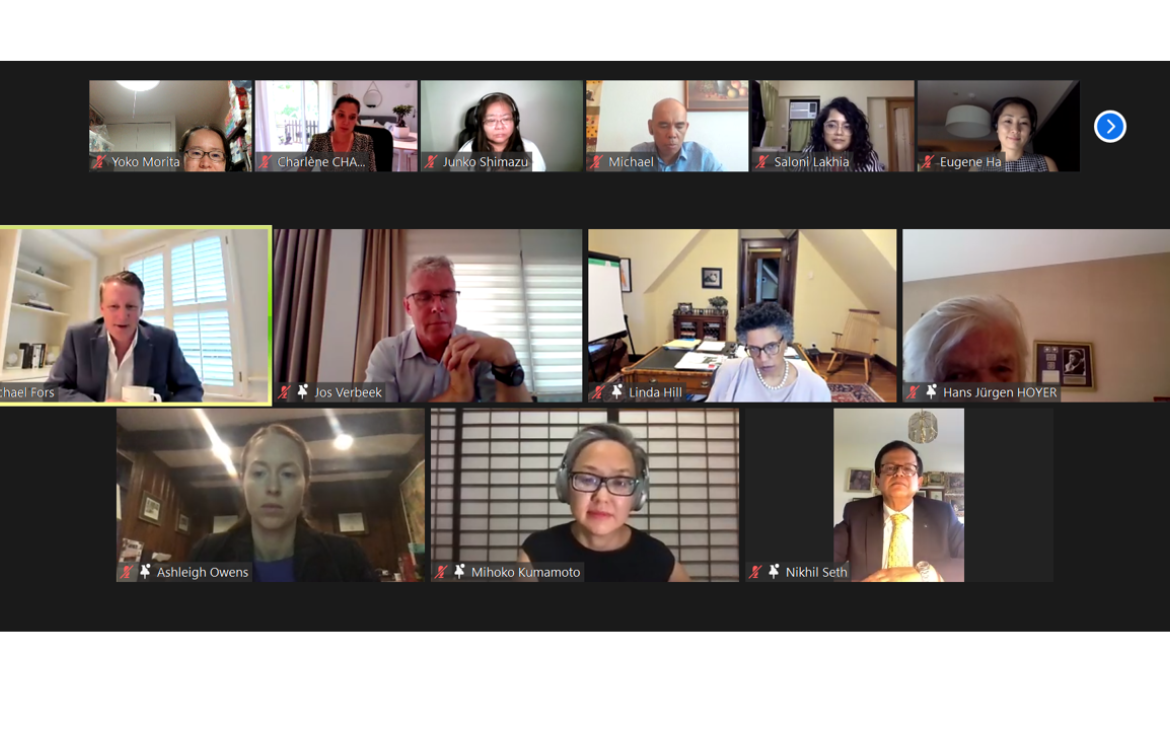14 June 2021, Hiroshima, Japan – The UNITAR Division for Prosperity Advisory Board met virtually on 10 June 2021. Experts from private and development sectors Michael A. Fors, Linda A. Hill, Hans Jürgen Hoyer, Ashleigh Owens, and Jos Verbeek gathered to discuss the Division’s success and future objectives. UNITAR Executive Director Nikhil Seth and Division for Prosperity Director Mihoko Kumamoto observed the discussion.
Michael Fors began the conversation by highlighting UNITAR’s efficient and resourceful shift to online learning. Fors also emphasized that with the shift, came an increase in taught skills and depth of pedagogy. While the content remained strong, the Division’s focus on branching the digital divide was evident throughout project implementation.
The team pivoted to the virtual online space rapidly, and I think it’s important we give credit to these efforts. Whereas it went smoothly, it required great effort.
In addition to the quick transition, Nikhil Seth highlighted how during this past year, UNITAR was able to quadruple the number of learners reached with programmes.
Moving forward, the Division for Prosperity hopes to build on its successes while continuing to reach the furthest first, to overcome the digital divide. To accomplish this goal, partnerships are key.
“Partnerships allow for everything from content creation to financial support,” said Mihoko Kumamoto.
About UNITAR
The United Nations Institute for Training and Research (UNITAR) provides innovative learning solutions to individuals, organizations and institutions to enhance global decision-making and support country-level action for shaping a better future.
Located in Hiroshima, UNITAR's Division for Prosperity offers world-class learning and knowledge-sharing services to present and future change makers from developing countries, particularly youth and women, that are designed to shape an inclusive, sustainable and prosperous world.
Our programmes are dedicated to addressing growing inequalities, working in solidarity with diverse partners at the local, regional and global levels.


